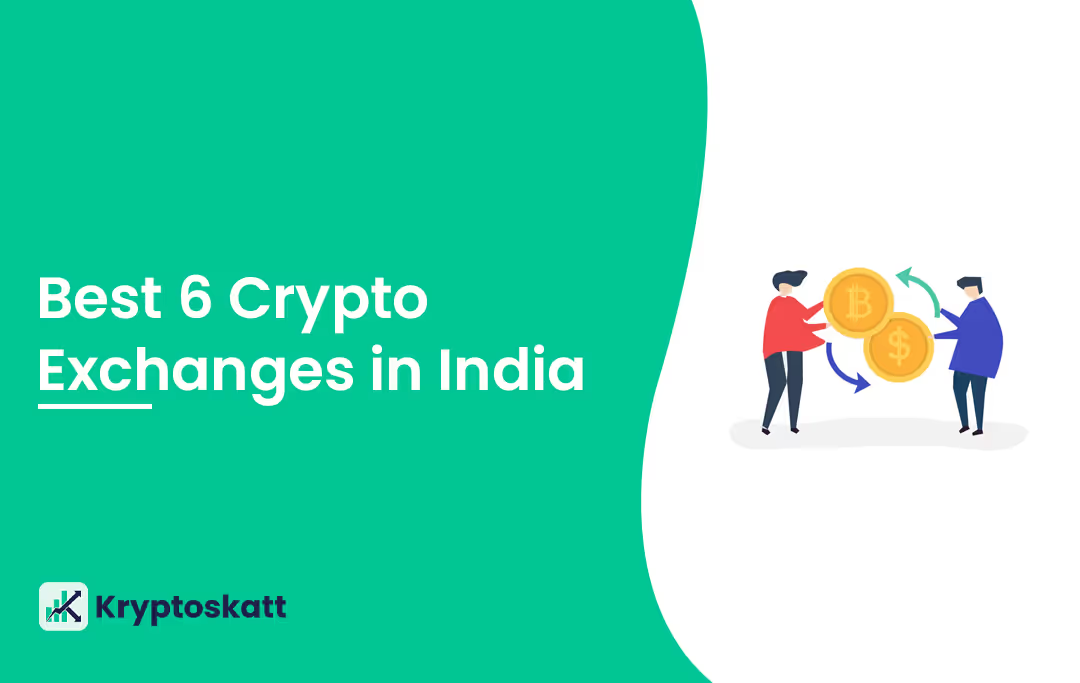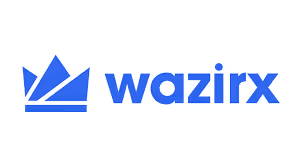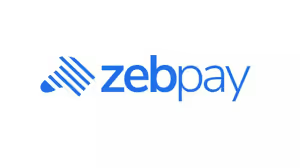
In recent years, India has witnessed a surge in cryptocurrency trading, with enthusiasts and investors flocking to digital assets.
Choosing the right cryptocurrency exchange is crucial, as it directly impacts your trading experience, security, and overall satisfaction.
To help you choose the best from the available crypto exchanges in India, here is a curated list of 7 exchanges known for their safety, reliability, and user-friendly features.
1. WazirX

WazirX stands tall as one of India's largest and most reputable cryptocurrency exchanges. With a vast selection of cryptocurrencies, a user-friendly interface, and robust security measures, WazirX has earned the trust of millions of users.
The exchange's native token, WRX, not only powers its ecosystem but also offers users discounts on trading fees, making it a popular choice among traders.
2. CoinDCX

CoinDCX prides itself on being India's most versatile and inclusive cryptocurrency exchange. Offering a diverse range of cryptocurrencies for trading, including popular options like Bitcoin, Ethereum, and Ripple, CoinDCX caters to both beginners and experienced traders.
The platform provides a seamless trading experience, advanced trading tools, and high liquidity, ensuring users can execute trades swiftly and efficiently.
3. ZebPay

ZebPay is one of India's earliest and most trusted cryptocurrency exchanges. Known for its user-friendly interface and strict security protocols, ZebPay offers a curated selection of cryptocurrencies, making it an ideal choice for beginners.
The exchange also provides educational resources, empowering users with the knowledge needed to make informed investment decisions.
4. Unocoin

Unocoin specializes in Bitcoin trading and is renowned for its simplicity and ease of use. Catering primarily to Bitcoin enthusiasts, Unocoin offers a straightforward platform for buying, selling, and storing Bitcoin securely.
The exchange also provides services like systematic investment plans (SIPs) in Bitcoin, allowing users to invest in cryptocurrency regularly.
5. Bitbns

Bitbns is a user-centric cryptocurrency exchange that emphasizes simplicity and accessibility. The platform supports a variety of cryptocurrencies and provides a unique feature called 'Margin Trading,' allowing users to amplify their trading potential.
Bitbns also offers a user referral program, enabling traders to earn rewards by inviting friends to join the platform.
6. PocketBits

PocketBits is a beginner-friendly cryptocurrency exchange in India that focuses on accessibility and education.
With a straightforward interface and a limited yet carefully curated selection of cryptocurrencies, PocketBits caters to users looking for a hassle-free trading experience. The exchange also offers educational resources to empower users with essential knowledge about cryptocurrencies and trading strategies.
Key Considerations for Choosing a Crypto Exchange in India
When selecting a cryptocurrency exchange in India, several factors should be taken into account to ensure the safety and best trading experience:
- Security: The exchange should prioritize security, including encryption, cold storage of funds, and two-factor authentication. Look for exchanges with a clean security track record.
- Regulatory Compliance: Given the evolving regulatory landscape in India, opt for exchanges that comply with local regulations and work closely with authorities.
- User Interface: An intuitive and user-friendly interface makes trading more accessible, especially for beginners. Mobile apps can add convenience to trading.
- Supported Cryptocurrencies: Consider the variety of cryptocurrencies available for trading, especially if you have specific digital assets in mind.
- Fees: Review the fee structure of the exchange, including trading fees, withdrawal fees, and deposit options. Some exchanges offer discounts for using their native tokens.
- Customer Support: Reliable customer support is essential for addressing issues or inquiries promptly.
- Liquidity: Higher liquidity ensures that you can easily buy or sell assets at market prices without significant price fluctuations.
- Reviews and Reputation: Check online reviews and the reputation of the exchange within the crypto community to gauge user experiences and satisfaction.
- Additional Features: Some exchanges offer features like staking, lending, and margin trading. Consider whether these features align with your trading goals.
- Compliance with KYC and AML: Exchanges that follow Know Your Customer (KYC) and Anti-Money Laundering (AML) procedures are more likely to provide a secure environment.
Wrapping Up
Selecting the safest and best cryptocurrency exchange in India is crucial for a seamless and secure trading experience.
The exchanges mentioned in this article have earned the trust of the Indian crypto community and offer robust security measures. However, it's important to conduct your research, stay updated on regulatory changes, and choose an exchange that aligns with your specific needs and preferences.
As the cryptocurrency market continues to evolve, India is poised to play a significant role in its growth, and a reliable exchange is your gateway to this growing world of digital assets.
FAQs
1. Are cryptocurrency exchanges legal in India?
Yes, cryptocurrency exchanges are legal in India. However, regulations are evolving, and it’s essential to stay updated on the latest guidelines issued by the government and regulatory authorities.
2. Which is the best cryptocurrency exchange for beginners?
For beginners, user-friendly platforms like WazirX, CoinDCX, and ZebPay are recommended. These exchanges offer intuitive interfaces, educational resources, and customer support to help beginners navigate the world of cryptocurrency trading.
3. How can I ensure the safety of my funds on a cryptocurrency exchange?
To ensure the safety of your funds, choose exchanges with robust security measures such as two-factor authentication (2FA), cold storage for digital assets, and encryption protocols. Additionally, avoid sharing sensitive information and use secure internet connections while trading.
4. Can I buy cryptocurrencies with Indian Rupees (INR) on these exchanges?
Most Indian cryptocurrency exchanges allow users to buy cryptocurrencies using Indian Rupees. They offer various payment methods, including bank transfers, UPI, and credit/debit cards, making it convenient for users to deposit INR and trade cryptocurrencies.
5. Can I trade multiple cryptocurrencies on these platforms?
Yes, most top cryptocurrency exchanges in India offer a wide range of cryptocurrencies for trading. You can trade popular cryptocurrencies like Bitcoin (BTC), Ethereum (ETH), Ripple (XRP), and many others. These platforms provide diverse trading pairs to cater to different investment preferences.
All content on Kryptos serves general informational purposes only. It's not intended to replace any professional advice from licensed accountants, attorneys, or certified financial and tax professionals. The information is completed to the best of our knowledge and we at Kryptos do not claim either correctness or accuracy of the same. Before taking any tax position / stance, you should always consider seeking independent legal, financial, taxation or other advice from the professionals. Kryptos is not liable for any loss caused from the use of, or by placing reliance on, the information on this website. Kryptos disclaims any responsibility for the accuracy or adequacy of any positions taken by you in your tax returns. Thank you for being part of our community, and we're excited to continue guiding you on your crypto journey!
| Step | Form | Purpose | Action |
|---|---|---|---|
| 1 | 1099-DA | Reports digital asset sales or exchanges | Use to fill out Form 8949. |
| 2 | Form 1099-MISC | Reports miscellaneous crypto income | Use to fill out Schedule 1 or C. |
| 3 | Form 8949 | Details individual transactions | List each transaction here. |
| 4 | Schedule D | Summarizes capital gains/losses | Transfer totals from Form 8949. |
| 5 | Schedule 1 | Reports miscellaneous income | Include miscellaneous income (if not self-employment). |
| 6 | Schedule C | Reports self-employment income | Include self-employment income and expenses. |
| 7 | Form W-2 | Reports wages (if paid in Bitcoin) | Include wages in total income. |
| 8 | Form 1040 | Primary tax return | Summarize all income, deductions, and tax owed. |
| Date | Event/Requirement |
|---|---|
| January 1, 2025 | Brokers begin tracking and reporting digital asset transactions. |
| February 2026 | Brokers issue Form 1099-DA for the 2025 tax year to taxpayers. |
| April 15, 2026 | Deadline for taxpayers to file their 2025 tax returns with IRS data. |
| Timeline Event | Description |
|---|---|
| Before January 1, 2025 | Taxpayers must identify wallets and accounts containing digital assets and document unused basis. |
| January 1, 2025 | Snapshot date for confirming remaining digital assets in wallets and accounts. |
| March 2025 | Brokers begin issuing Form 1099-DA, reflecting a wallet-specific basis. |
| Before Filing 2025 Tax Returns | Taxpayers must finalize their Safe Harbor Allocation to ensure compliance and avoid penalties. |
| Feature | Use Case Scenario | Technical Details |
|---|---|---|
| Automated Monitoring of Transactions | Alice uses staking on Ethereum 2.0 and yield farming on Uniswap. Kryptos automates tracking of her staking rewards and LP tokens across platforms. | Integrates with Ethereum and Uniswap APIs for real-time tracking and monitoring of transactions. |
| Comprehensive Data Collection | Bob switches between liquidity pools and staking protocols. Kryptos aggregates all transactions, including historical data. | Pulls and consolidates data from multiple sources and supports historical data imports. |
| Advanced Tax Categorization | Carol earns from staking Polkadot and yield farming on Aave. Kryptos categorizes her rewards as ordinary income and investment income. | Uses jurisdiction-specific rules to categorize rewards and guarantee compliance with local tax regulations. |
| Dynamic FMV Calculation | Dave redeems LP tokens for Ethereum and stablecoins. Kryptos calculates the fair market value (FMV) at redemption and during sales. | Updates FMV based on market data and accurately calculates capital gains for transactions. |
| Handling Complex DeFi Transactions | Eve engages in multi-step DeFi transactions. Kryptos tracks value changes and tax implications throughout these processes. | Manages multi-step transactions, including swaps and staking, for comprehensive tax reporting. |
| Real-Time Alerts and Updates | Frank receives alerts on contemporary tax regulations affecting DeFi. Kryptos keeps him updated on relevant changes in tax laws. | Observe regulatory updates and provide real-time alerts about changes in tax regulations. |
| Seamless Tax Reporting Integration | Grace files taxes using TurboTax. Kryptos integrates with TurboTax to import staking and yield farming data easily. | Direct integration with tax software like TurboTax for smooth data import and multi-jurisdictional reporting. |
| Investor Type | Impact of Crypto Tax Updates 2025 |
|---|---|
| Retail Investors | Standardized crypto reporting regulations make tax filing easier, but increased IRS visibility raises the risk of audits. |
| Traders & HFT Users | To ensure crypto tax compliance, the IRS is increasing its scrutiny and requiring precise cost-basis calculations across several exchanges. |
| Defi & Staking Participants | The regulations for reporting crypto transactions for staking rewards, lending, and governance tokens are unclear, and there is a lack of standardization for decentralized platforms. |
| NFT Creators & Buyers | Confusion over crypto capital gains tax in 2025, including the taxation of NFT flips, royalties, and transactions across several blockchains. |
| Crypto Payments & Businesses | Merchants who take Bitcoin, USDC, and other digital assets must track crypto capital gains for each transaction, which increases crypto tax compliance requirements. |
| Event | Consequences | Penalties |
|---|---|---|
| Reporting Failure | The tax authorities can mark uncontrolled revenues and further investigate. | Penalty fines, interest on unpaid taxes and potential fraud fees if they are deliberately occurring. |
| Misreporting CGT | Misreporting CGT Error reporting profits or losses can trigger the IRS audit. | 20% fine on under -ported zodiac signs, as well as tax and interest. |
| Using decentralized exchanges (DEXs) or mixers without records | The IRS can track anonymous transactions and demand documentation. | Possible tax evasion fee and significant fine. |
| Disregarding Bitcoin mining tax liabilities | Mining reward is considered taxable income, and failure of the report can be regarded as tax fraud. | Further tax obligations, punishment and potential legal steps. |
| Foreign crypto holdings: Non-disclosure | Foreign-accepted crypto FATCA may be subject to reporting rules. | Heavy fines (up to $ 10,000 per fracture) or prosecution for intentional non-transport. |



